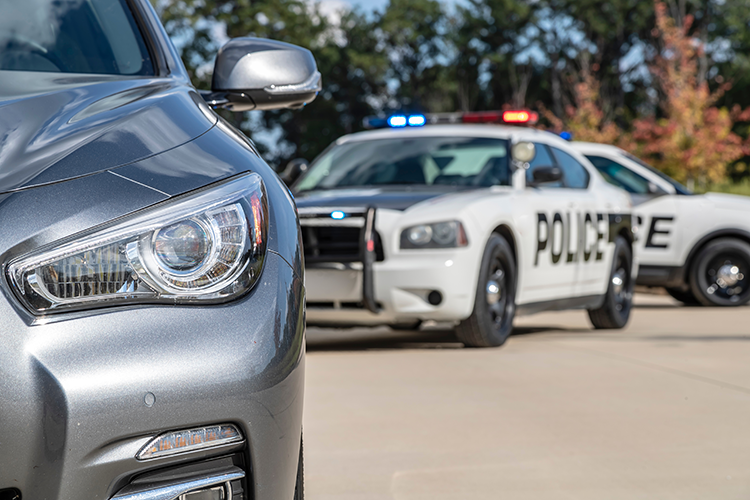Passenger had First Amendment right to livestream traffic stop, but officer is protected, 4th Circuit rules

Image from Shutterstock.
A federal appeals court ruled Tuesday that a car passenger had a First Amendment right to livestream a traffic stop in in Winterville, North Carolina.
The based 4th U.S. Circuit Court of Appeals at Richmond, Virginia, ruled for Dijon Sharpe on the First Amendment issue but said the officer he sued had qualified immunity because the constitutional right was not clearly established.
Judge Julius N. Richardson, an appointee of former President Donald Trump, wrote the Feb. 7 opinion. He was joined by U.S. District Judge Michael S. Nachmanoff of the Eastern District of Virginia, an appointee of President Joe Biden who was sitting on the appeals panel by designation.
The Washington Post has coverage.
“Recording police encounters creates information that contributes to discussion about governmental affairs. So too does livestreaming disseminate that information, often creating its own record. We thus hold that livestreaming a police traffic stop is speech protected by the First Amendment,” Richardson wrote.
Sharpe had sued the officer who tried to take his phone after Sharpe affirmed that he was livestreaming the stop to Facebook. The officer and his partner told Sharpe that he could record the traffic stop, but he could not livestream it because of a threat to officer safety, according to the appeals court.
The town of Winterville, North Carolina, had maintained that the ban on livestreaming was needed because viewers could locate the officers and intervene in the encounter.
The appeals court said the officer had qualified immunity because there is no controlling authority in the 4th Circuit that establishes a right to livestream traffic stops.
“Nor is there any consensus of persuasive authority to establish this right,” the appeals court said.
Cases outside the 4th Circuit don’t address a passenger livestreaming a police officer, the appeals court said. Instead, the cases are generally about video recordings, rather than livestreams, and the people doing the recording tend to be bystanders.
Sharpe had also alleged that Winterville had a policy banning the livestreaming of his traffic stop in violation of the First Amendment. But the 4th Circuit remanded for more fact-finding on whether the policy exists and whether it could be justified because it addressed important interests in a narrowly tailored way.
Judge Paul V. Niemeyer concurred in the decision that the officer was protected by qualified immunity. But he said the case should have been analyzed under the Fourth Amendment because a traffic stop is a seizure, and the cellphone policy was an aspect of the seizure. Such an analysis would look at whether the livestreaming restriction was reasonable.



